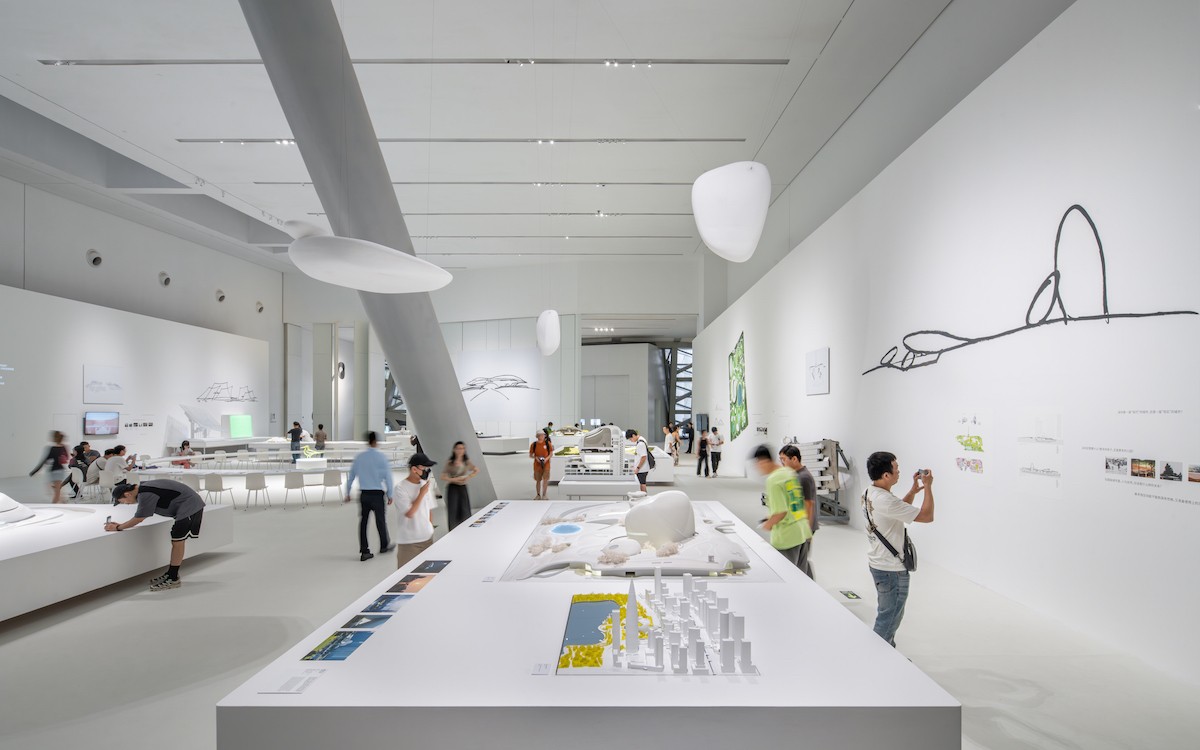Landscapes in Motion
The exhibition “Ma Yansong: Landscapes in Motion” was recently inaugurated at the Shenzhen Museum of Contemporary Art and Urban Planning (MoCAUP) in China. The exhibition provides a retrospective of MAD’s research and practices through 52 projects spanning almost two decades across an expansive space of more than 3,000 square meters. It also constitutes the MoCAUP’s first solo exhibition of architecture since its opening in 2016.
As the largest, most comprehensive, and critical exhibition since MAD’s founding in 2004, “Ma Yansong: Landscapes in Motion” is divided into four chapters: “Dialogue,” “Progress,” “Feelings are Facts,” and “Rhapsody.” More than half of the exhibits have never been viewable by the public, including Ma Yansong’s hand sketches, detailed drawings from design development, proposals from landscape and structural collaborators, architectural models, and image and video archives of construction process.
The main section of the exhibition commences with more than 180 questions posed from current and previous architects from MAD. The questions touch upon topics related to urban development, architecture, daily life, the role of architects, the future, and dreams, all of which MAD members consider and doubt when designing. Selected questions are further put on a huge circle table, hoping for visitors to further engage in ongoing, extensive, and profound dialogues.
Section I, “Dialogue,” presents seven urban public projects, most of which are also city landmarks, such as the Shenzhen Bay Culture Park, Harbin Opera House, FENIX Museum of Migration, Quzhou Sports Park, Yiwu Grand Theater, Lucas Museum of Narrative Art, and Freedom (a public installation). The embedded design philosophy is the response MAD rendered to questions regarding cities, communities, and people’s well-being. Before starting the journey through the exhibition, visitors can view questions first laid on the wall for all to ponder: “Can architecture reshape society’s boundaries?”, “What defines a happy city?”, and “What will China’s cities resemble in the future?”
Section II, “Progress,” showcases MAD projects either under construction or completed, including the Zhongguancun Forum Congress Center, Hainan Science and Technology Museum, Jiaxing Train Station, and Absolute Towers. These projects represent MAD’s diverse practices: the future city originates from the imagination of a diverse and dynamic urban reality.
Section III, “Feelings are Facts,” introduces 15 design and land art projects, including the Tunnel of Light, Light, and Superstar. These projects showcase MAD’s imagination when addressing different topics through a medium outside of typical architecture. Even so, the design philosophy behind art projects interlink as those of architecture; imagination generates from emotions toward a reality.
